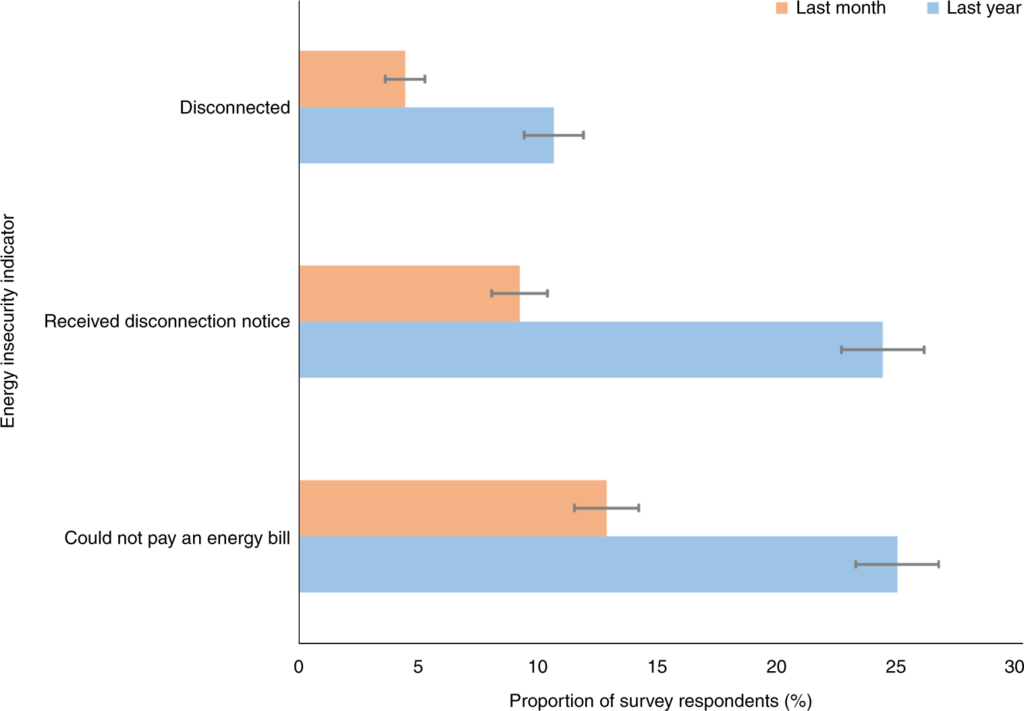Which countries are the most energy insecure?

Energy plays a crucial role in the development and well-being of nations. However, not all countries have equal access to reliable and affordable energy sources. Energy insecurity refers to the lack of access to sufficient, reliable, and affordable energy resources. In this article, we will explore the concept of energy insecurity, the factors contributing to it, and the countries that are most affected by this pressing issue.
Understanding Energy Insecurity
Energy insecurity is a complex issue that arises due to various factors such as geographical constraints, political instability, economic limitations, and environmental challenges. It can have severe consequences on a country's economy, environment, and social well-being. Understanding the root causes of energy insecurity is crucial in finding effective solutions to address this global concern.
Factors Contributing to Energy Insecurity
Several factors contribute to energy insecurity in different countries. These include:
- Limited domestic energy resources
- Dependency on energy imports
- Inadequate energy infrastructure
- Political instability and conflicts
- Poverty and economic constraints
- Environmental challenges and climate change
Measuring Energy Insecurity
Quantifying energy insecurity is a challenging task as it involves the analysis of multiple variables. However, various organizations and researchers have developed methodologies to measure energy insecurity. These measures consider factors such as energy availability, affordability, reliability, and environmental sustainability.
The Most Energy Insecure Countries
Question 1: What is the criteria for determining energy insecurity?
The criteria for determining energy insecurity may vary depending on the methodology used. However, common indicators include a high energy import dependency, low energy access rates, inadequate energy infrastructure, and a lack of diversification in energy sources.
Question 2: Which countries are considered the most energy insecure?
Several countries are currently facing significant energy insecurity. Some of the most energy insecure countries include:
- Niger
- Yemen
- Chad
- Zimbabwe
- Haiti
Question 3: What are the main factors contributing to energy insecurity in these countries?
The main factors contributing to energy insecurity in these countries include a lack of domestic energy resources, limited energy infrastructure, political instability, economic challenges, and environmental vulnerabilities.
Question 4: What are the potential consequences of energy insecurity?
Energy insecurity can have severe consequences, including:
- Impaired economic growth and development
- Social inequality and poverty
- Increased reliance on fossil fuels
- Environmental degradation
- Political instability and conflicts
Addressing Energy Insecurity
Addressing energy insecurity requires a multi-faceted approach involving governments, international organizations, and the private sector. Some potential solutions include diversifying energy sources, investing in renewable energy infrastructure, promoting energy efficiency, enhancing energy access, and fostering international cooperation.
Conclusion
Energy insecurity is a critical issue that affects numerous countries around the world. By understanding the factors contributing to energy insecurity and identifying the most vulnerable countries, we can work towards finding sustainable solutions to mitigate its impact. It is crucial for governments, organizations, and individuals to collaborate and prioritize efforts in ensuring equitable access to affordable and reliable energy for all.
Frequently Asked Questions
Q: What is energy insecurity?
A: Energy insecurity refers to the lack of access to sufficient, reliable, and affordable energy resources.
Q: How is energy insecurity measured?
A: Energy insecurity is measured using various indicators such as energy availability, affordability, reliability, and environmental sustainability.
Q: Which countries are most affected by energy insecurity?
A: Some of the most energy insecure countries include Niger, Yemen, Chad, Zimbabwe, and Haiti.
Q: What are the consequences of energy insecurity?
A: Consequences of energy insecurity can include impaired economic growth, social inequality, increased reliance on fossil fuels, environmental degradation, political instability, and conflicts.

Leave a Reply